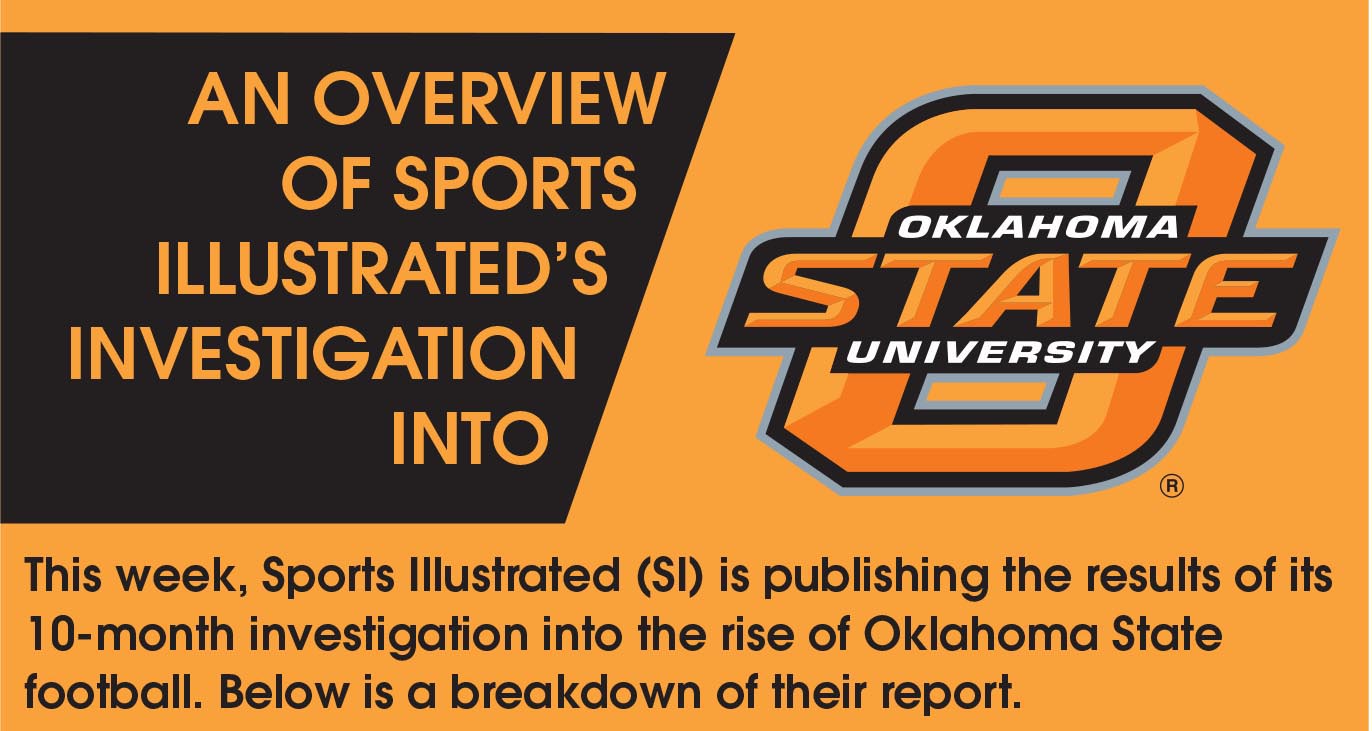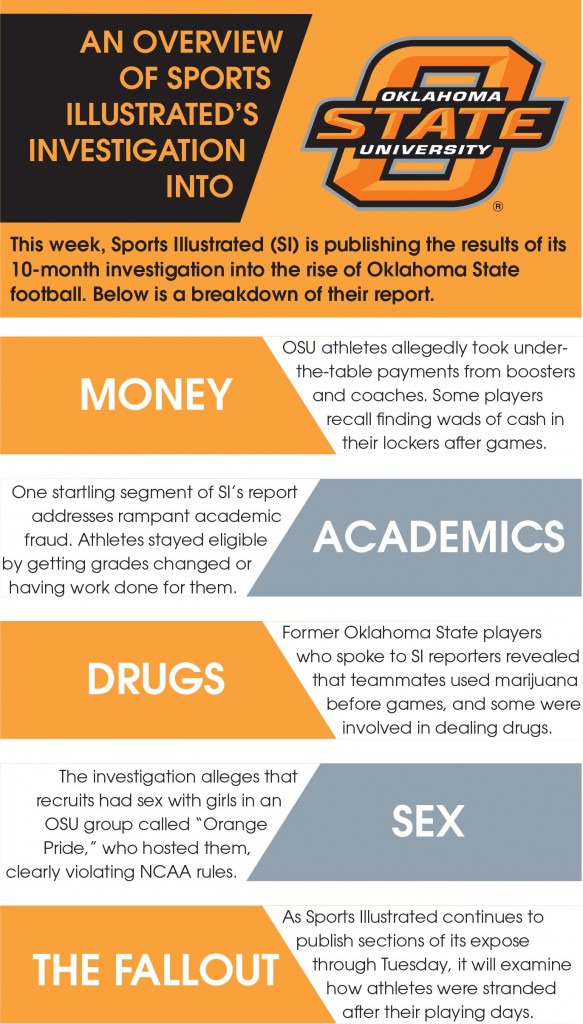Les Miles used to tell his players, “Academics first, football second.”
But a new Sports Illustrated (SI) report that alleges rampant misconduct at Oklahoma State University suggests Miles – the coach there from 2000-2004 – held up two fingers when he said “first” and one finger for “second.”
Facetious as Miles may have been, it’s a fitting way to illustrate what were clearly very skewed priorities at OSU.
The Sports Illustrated piece mentions cash payments up to $25,000 for football players, including bonuses based on performance. There are allegations about illicit booster activity that make Nevin Shapiro look like an altar boy by comparison.
It’s easy to shake off the budding Oklahoma State ordeal as just one more entry in an appalling string of recent college sports scandals.
But the big picture here is troubling. The system isn’t working.
The mega-booster T. Boone Pickens still thinks Oklahoma State is committed to “principled sportsmanship,” according to a statement he released Tuesday.
Pickens, who has given hundreds of millions to the Cowboys, said the expose is not indicative of how the program operates of late.
But at this point, does it even matter?
The allegations are eye-popping, and if proven, they negate the remarkably quick turnaround from loser to winner that OSU pulled off.
Players quoted in the academics portion of the SI tell-all suggest that schoolwork was meaningless. Thirteen former Cowboys said they cheated to stay eligible, and they divulged 16 other names in their interviews.
Homework completed by tutors, answers to exams, even getting class credit without showing up: These allegations should concern anyone with a pulse.
Instead of educating their student-athletes – that is, setting them up for life after football – OSU coaches apparently conspired with teachers and administrators to keep players eligible by any means necessary.
It is unnerving that the leaders of these programs are comfortable straying so far from the rules.
They do so in order to field the best team and, ultimately, win the most games. But, ironically, most who get caught end up costing their programs scholarships, postseason appearances or even lucrative TV deals.
Some people think it’s a matter of when, not if, the nation’s current football powerhouses come tumbling down, too.
In this age of NCAA scandal, it’s almost natural for fans to grow cynical and wonder why top dogs like Alabama or LSU have no dirt against them.
Are there programs that succeed without breaking the rules? Given the cutthroat culture of today’s college sports, is it even possible?
Schools are demonstrating time after time a willingness to get ahead by bending the rules. Programs like USC, Auburn and Oregon (all title contenders within the last decade) have been exposed for misconduct on the recruiting trail.
And recruiting violations are obviously different than compensation issues, which are wholly separate from academic fraud. But together they demonstrate a huge spectrum of wrongdoing that can go unnoticed by the governing NCAA for years.
The NCAA is trying to tackle problems like the amateur status of its student-athletes and the role of boosters within athletic departments.
But for now, their inability to keep programs in check is all too apparent.
One might even call it a lack of institutional control.
[fresh_divider style=”solid”]
[fresh_divider style=”solid”]







